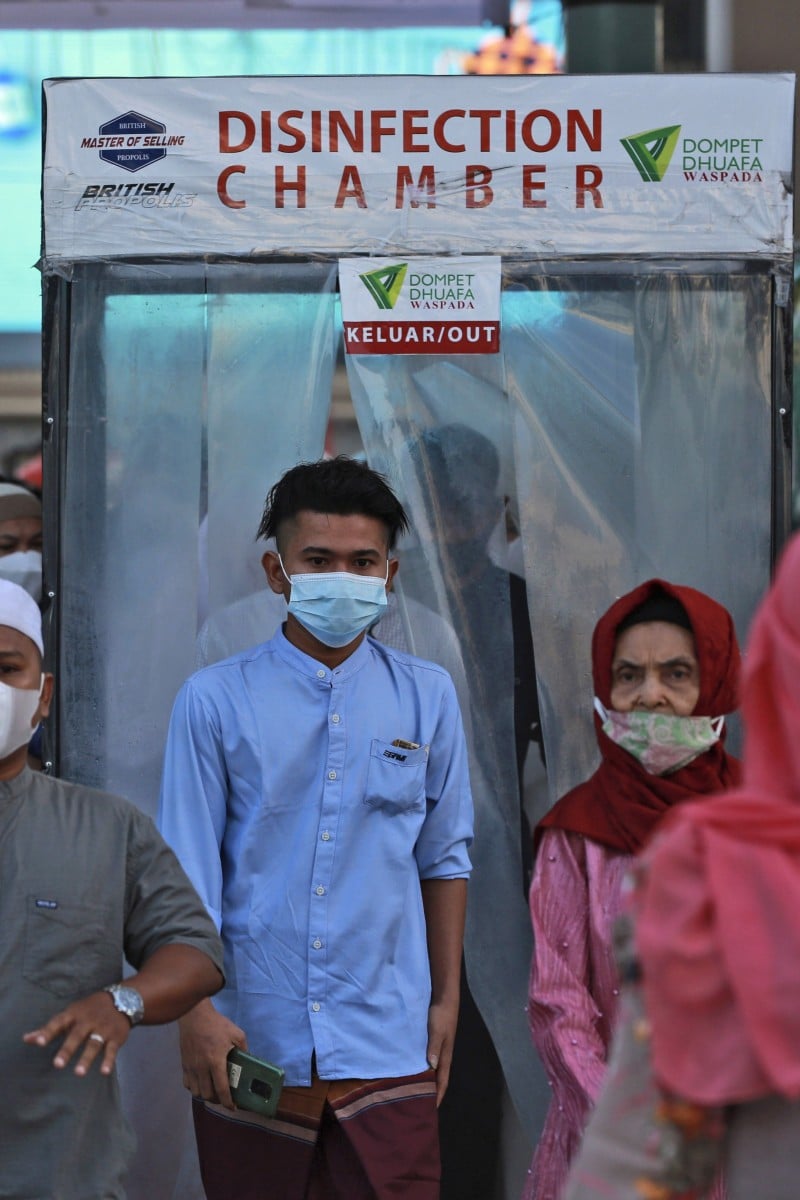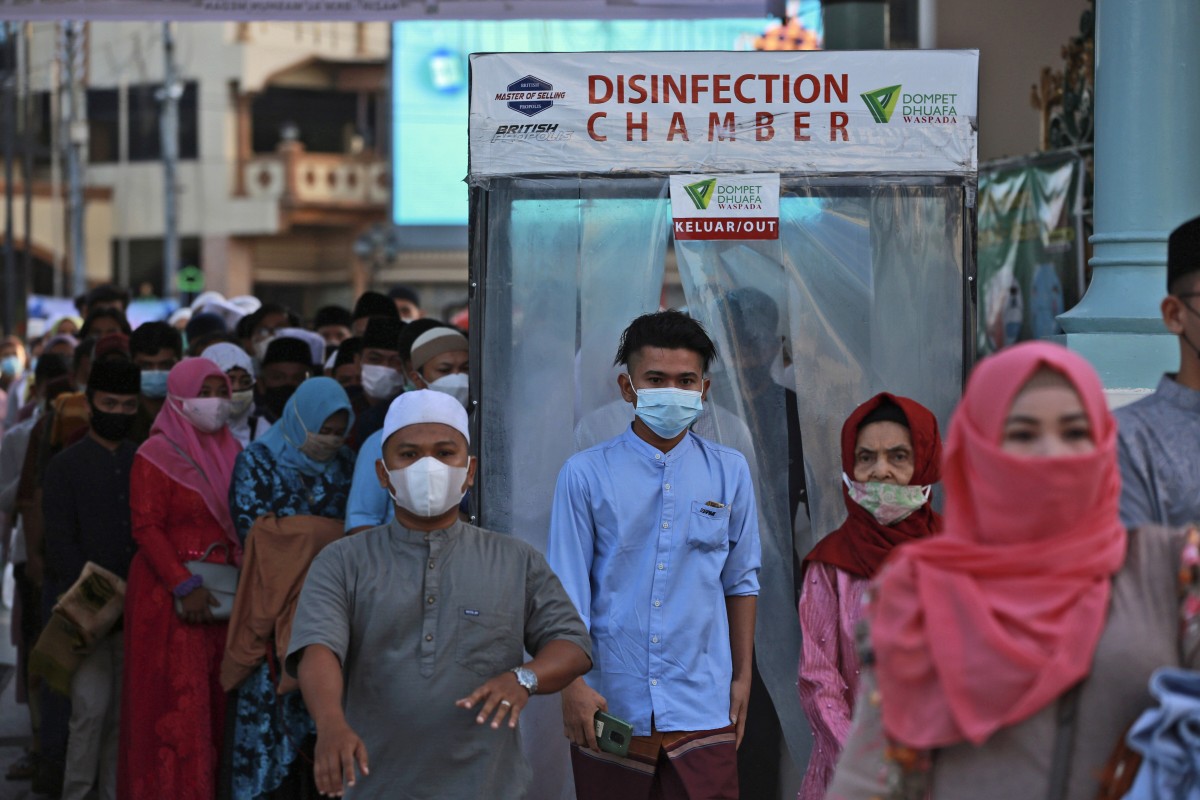
Covid-19 shuts down Eid al-Fitr celebrations for Indonesian Muslims for the second year in a row
- Mosques were closed in Jakarta, and people were banned from travelling to see family for the celebration that ends Ramadan
- The country has seen nearly two million coronavirus infections and cases spiked by 37 per cent shortly after last year’s holiday
 People walk through a disinfection chamber installed to curb the spread of coronavirus as they enter Al Mashun Great Mosque for Eid al-Fitr prayer in Medan, North Sumatra, Indonesia. Photo: AP
People walk through a disinfection chamber installed to curb the spread of coronavirus as they enter Al Mashun Great Mosque for Eid al-Fitr prayer in Medan, North Sumatra, Indonesia. Photo: APMuslims in Jakarta, Indonesia celebrated Eid al-Fitr in a subdued mood for the second year in a row on Thursday as the Covid-19 pandemic again forced mosque closings and family separations on the holiday marking the end of Islam’s holiest month of Ramadan.
Worshippers wearing masks joined communal prayers in the streets of Indonesia’s capital, Jakarta.
The world’s most populous Muslim-majority nation allowed mosque prayers in low-risk areas, but those in areas where there was more risk of the virus spreading closed their doors, including Jakarta’s Istiqlal grand mosque, the largest mosque in Southeast Asia.
How youth in India are fighting the Covid-19 crisis
Indonesians also were banned for a second year from travelling to visit relatives in the traditional Eid homecoming known locally as “mudik.”
“I understand that we all miss our relatives at times like this, especially in the momentum of Eid,” President Joko Widodo said in televised remarks on the decision. “But let’s prioritise safety together by not going back to our hometowns.”
Despite the mudik ban last year, the number of daily cases in Indonesia picked up by 37 per cent three weeks after the holiday. Similar patterns followed other holidays in the country, which has counted 1.7 million infections and more than 47,600 fatalities from Covid-19.
Indonesian Muslims attend a mass prayer session at Gunung Labu field as Mount Kerinci Volcano is seen in the background in West Kayu Aro, Kerinci, Jambi province. Photo: Antara Foto/Wahdi Septiawan/ via Reuters
The Jakarta governor also ordered malls, restaurants and leisure destinations usually packed during the holiday period to shut.
With no prayers at mosques, no family reunions, and no relatives bearing gifts and cookies for children, “Eid is not a grand event anymore,” Jakarta resident Maysa Andriana said. “The pandemic has changed everything ... this is too sad!” she said.
Although police set up highway checkpoints, and domestic flights and other modes of transportation were suspended, anxiety lingers that people will defy the prohibition. Television reports showed city dwellers hiding on disguised trucks or fishing boats and officers at roadblocks being overwhelmed by desperate motorists.
Why children fare better in the fight against coronavirus
“We followed the government decision that banned us from visiting my parents for Eid last year, it’s enough! Nothing can stop me now,” said factory worker Askari Anam, who used alleys and shortcuts to avoid being stopped from visiting his hometown.
“Of course I’m worried,” he said, when asked about possibly contracting the virus. “But I leave it to God.”
Health Minister Budi Gunadi Sadikin expressed concern about a virus spike and feared people would travel despite the ban.
“I hope an increase in cases won’t happen, but if it does, we’d like to anticipate it,” Sadikin said, adding that there are sufficient healthcare facilities. “It is our duty to prepare for the worst situations.”